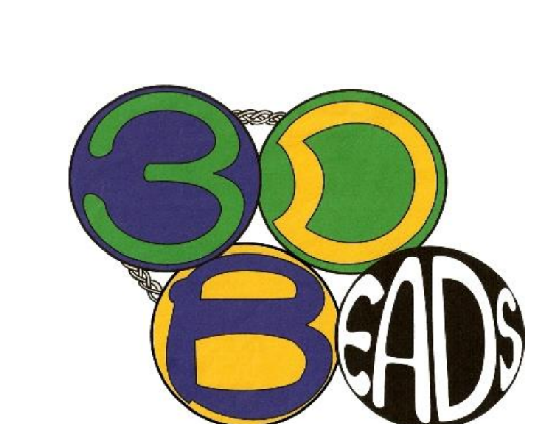For most people, Mardi Gras is all fun and games — until it isn’t.
Tons of Mardi Gras beads flood the streets and trees, and eventually wind up in large bodies of water. The beads pollute the environment, and once in the water, birds and fish mistake them for food and consume them. Many beads contain toxins and harmful chemicals and metals, including lead.
Beads never break down or decompose to become part of the environment. But, one Baton Rouge innovator is trying to change that.
Founder of 3D Beads, Marcus Ciko, who for decades has created costumes and artwork out of Mardi Gras beads, has come up with a plan to make biodegradable beads. While there are many options for making the beads, and Ciko said he has researched all of them, he believes his best bet is using plant matter, specifically the fibrous matter left over from sugarcane.
“Current beads are photodegradable,” Ciko said. “They never break down into base elements, just smaller pieces. Biodegradable means they will break down into base elements over time.”
Current beads also pose a big threat to both wildlife and humans, Ciko said, and that will all change with the creation of biodegradable beads using plant matter.
“They have lead, phthalates, cadmium, arsenic, other endocrine system disruptors, it’s a real mess,” Ciko said. “They’ve been using recycled chunks of electronics, like used iPhones have been in the beads lately. A lot of people don’t know that.”
While he’s doing his part to educate people about the danger of current beads, Ciko said there has been some confusion as to what biodegradable means.
Ciko said people often mistake the term biodegradable for disintegrating, thinking the beads will simply evaporate eventually. He stresses that this is incorrect, but he plans on making beads with those capabilities in the future.
Ciko’s friend and fellow bead costume maker Phillip Davis is all in on the safer beads.
“We’re talking about making beads that would dissolve,” Davis said. “So the beads wouldn’t be up in the trees and messing up the gutter system.”
When Ciko informed Davis of his plan for the beads, Davis didn’t hesitate to join.
“We’ve been working together for a few years now,” Davis said. “We both agreed that beads need to take a different direction, especially for locals.”
Davis said the beads would not only be environmentally friendly, but more plentiful and cheaper. Ciko and Davis would produce the beads locally instead of overseas, which would cut down on the shipping and selling costs.
As of now, Davis said he and Ciko are going with the flow letting people know about the idea, while hoping to educate and gain funding to go into production.
“The crews over here don’t really know about the problem,” Davis said. “They just go buy them and then they thrown them out, and don’t really think about the environmental impact of the product.”
Ciko and Davis plan on utilizing Kickstarter to get the project rolling, and eventually present south Louisiana, as well as the rest of the country, with biodegradable beads.
Local man makes plan for safer Mardi Gras beads
February 3, 2016

Courtesy of Marcus Ciko




